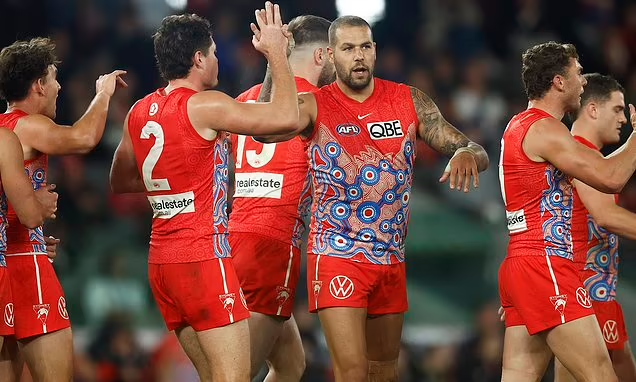
In a decision that has sparked debate and raised eyebrows across the football community, Waalitj Marawar (West Coast) forward Jack Darling has managed to escape a ban following a collision with opponent Jack Bytel.
The incident occurred during a recent match, leading to intense scrutiny and speculation regarding potential repercussions for Darling. However, despite initial concerns, the league’s Match Review Officer ultimately opted not to impose a ban on the 31-year-old forward.
This decision has left many fans and commentators perplexed, especially considering the severity of the collision and its implications for player safety. Darling’s avoidance of punishment has reignited discussions surrounding the consistency and effectiveness of the AFL’s disciplinary processes.

The Match Review Officer cited extenuating circumstances beyond Darling’s control as a key factor in the decision-making process. While the specifics of these circumstances remain unclear, the ruling has nonetheless generated significant controversy and divided opinions within the football community.
Some argue that Darling’s escape from a ban sets a concerning precedent and undermines the league’s commitment to player welfare and safety. Others, however, contend that the decision reflects a nuanced understanding of the complexities inherent in on-field collisions and the need for fair and consistent adjudication.
For Darling and the West Coast Eagles, the ruling comes as a relief, allowing the forward to continue his contributions to the team without interruption. However, questions linger regarding the broader implications of the decision and its potential impact on future disciplinary proceedings.

As discussions surrounding player safety and accountability continue to evolve, Darling’s case serves as a reminder of the challenges faced by league officials in adjudicating incidents on the field. Moving forward, there is a growing call for greater transparency and consistency in disciplinary decisions to ensure the integrity and fairness of the game.
Ultimately, Darling’s avoidance of a ban represents a contentious chapter in the ongoing narrative of player safety and accountability within the AFL. As the league grapples with these issues, the debate surrounding Darling’s collision with Jack Bytel serves as a poignant reminder of the complexities inherent in governing one of Australia’s most beloved sports.






